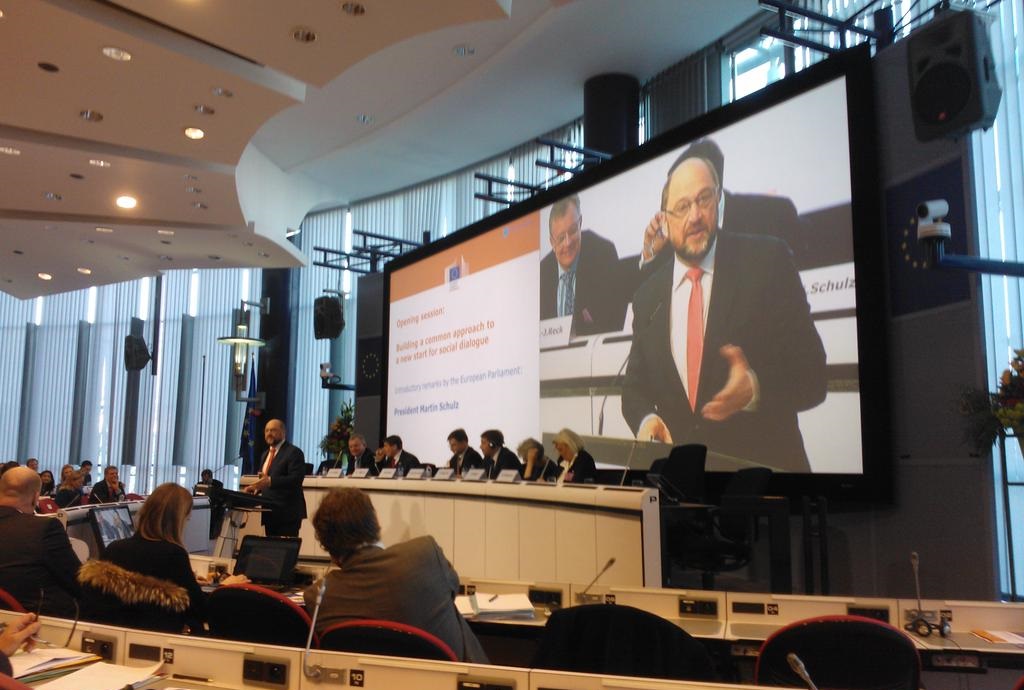High Level Conference in Brussels: A new start for social dialogue?
Published:
On 5 March 2015, the European Commission (EC) hosted a high level conference in Brussels involving the top leaders of the European and national trade unions and employers' organisations in open discussions on their visions of the future social dialogue. The event is the EC's first concrete action on social dialogue following President Jean-Claude Juncker's Opening Statement in the European Parliament Plenary Session in July 2014. Juncker had emphasized in his speech that social dialogue was affected by the crisis and had to be reinforced. He even declared this assessment to be a top priority issue stating that he "would like to be a President of social dialogue".
The highly prestigious conference was attended by European top politicians such as Martin Schulz, President of the European Parliament and EC president Jean-Claude Juncker. Well over 400 participants came together to listen to the Juncker Commission's views on the objectives and means which should be pursued with a view to achieving what they called "a new start for social dialogue". They got the opportunity to express their concerns in six workshops which dealt with the development of social partnership at national and European level and the contribution of social partners in European policy making and implementation.
ETUCE was represented by President Christine Blower who also participated in a conference workshop on skills, education and training needs in anticipation of a changing environment. Panellists and participants spoke about the objectives of education and training with a view to the increase and improvement of employment. Tibor Navracsics, European Commissioner for Education, Culture, Youth and Sport, highlighted that education and training, from pre-primary to higher education must focus on preparing pupils and students for employability. Blower commented: "Of course, those of us who are teachers and teach children from the age of 3 to 18 and then for those who leave further to universities absolutely recognise the reality of the world of work, for the work from pre-primary up to the needs of higher education. However, the world of work is not instrumental and mechanic. Therefore, teachers do also need to be involved in tasks such as curricula development. The eight year old we are teaching today will enter a world of work which will be very different than it is today. Children do not only need digital skills no matter how important it is."
It remains to be seen whether the event was just a one-off initiative and the EC merely paid lip service or whether words will be put into practice. Particularly the final speeches gave reason to hope for an increasingly more influential position of the social partners in the future European policy shaping process. The European Commissioners Valdis Dombrovskis and Marianne Thyssen, both engaged with the promotion of social dialogue, had expressed optimistic views about the stronger future involvement of the social partners and they also made suggestions on possible topics such as the upcoming labour mobility package, the digital single market, the European semester and others. From their speeches it could have been concluded that for the new EU Commission the enhanced position of social dialogue was not only a required option but rather even a vital pre-requisite for a successful political, economic and social development of the European Union. ETUCE will be well prepared to meet the upcoming challenges.